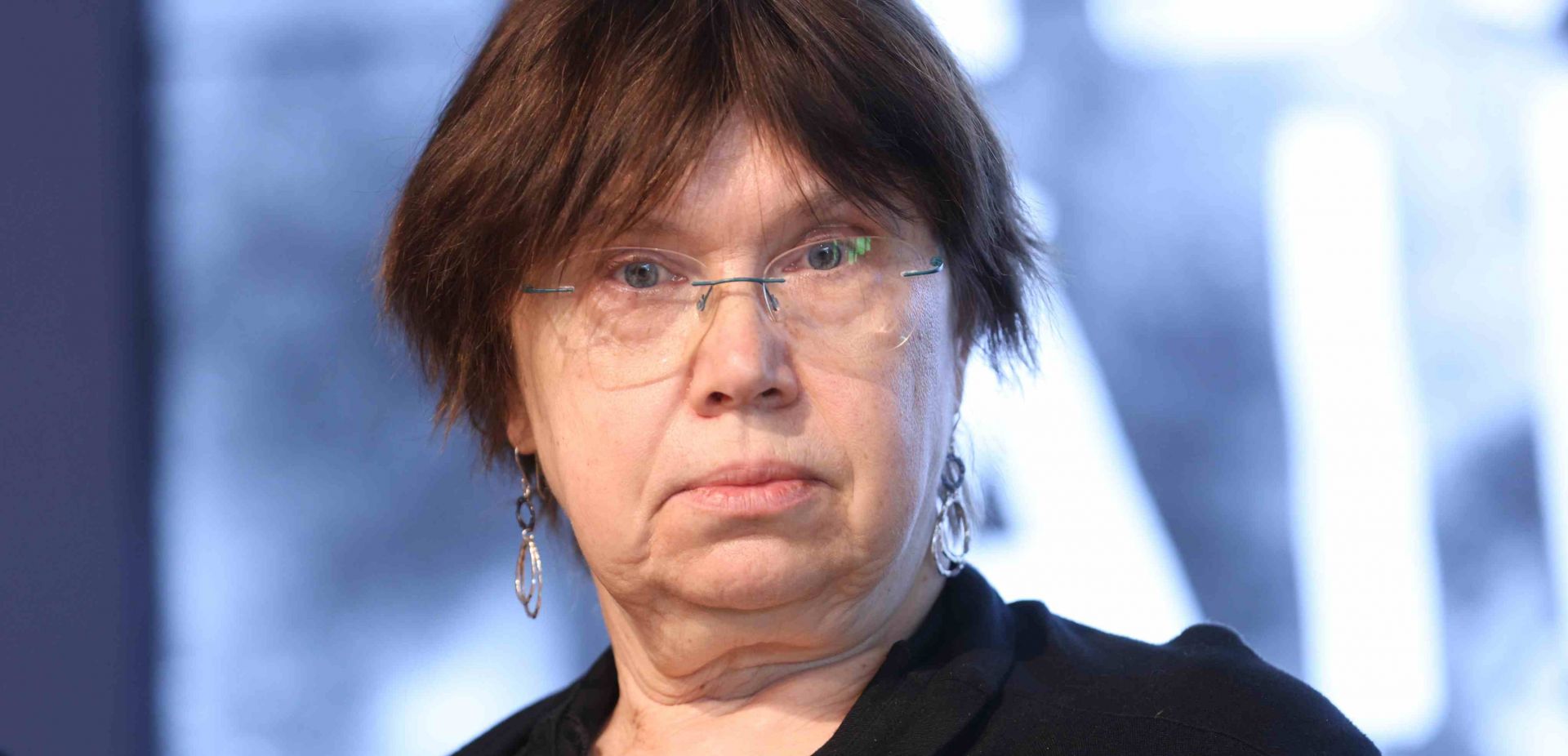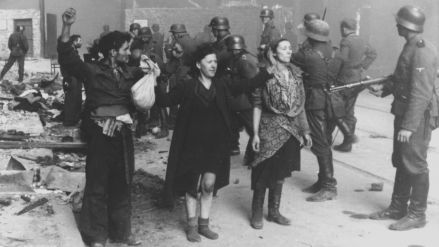The Center for Holocaust Research has been operating at the Institute of Philosophy and Sociology of the Polish Academy of Sciences since 2003. Director of the Institute Prof. Henryk Domański appointed Barbara Engelking-Boni with a PhD in sociology as the director of the center. One of the main goals of the Center was to prepare and publish translations of the world’s most important publications in the field of Holocaust research. Currently, she leads a team of eight scientists.
The director and her close collaborator Dariusz Libionka, a history graduate from the Catholic University of Lublin, have questioned the existence and later the activities and leaders of the Jewish Military Union from the beginning. In 2012, in an interview for the Polish Press Agency, Dariusz Libionka said that “the Apfelbaum case is just one of the many distortions that have accumulated around this organization over the years”.
In the book “Bohaterowie, hochsztaplerzy, opisywacze” (Warsaw 2011), the authors Libionka and Laurence Weinbaum wrote: “Mieczysław Apfelbaum, the patron of one of the Warsaw squares, the alleged commander of the Jewish Military Union, was invented by two clever liars who were believed by serious historians”. And they mention Prof. Tomasz Strzembosz and Władysław Bartoszewski.
Dzieje.pl quotes his statement: “The attitude of the Polish underground to the uprising in the Warsaw ghetto can be described as indifferent, and after the war Iwański perfectly sensed the situation, the need for a narrative about Polish-Jewish brotherhood. According to his stories, he personally delivered more weapons to the Ghetto than the Polish People’s Army, People’s Guard, and Home Army combined, he helped Jews for free, he lost his father, two sons and a brother fighting alongside them. The trust with which his stories were received by historians shows how much such a figure of a Pole helping the Ghetto fighters was needed. To this day, in most dictionaries and studies, the name of Iwański and the nonsense he told are repeated next to the JMU entry.
Dariusz Libionka ignores or mocks scientific and military authorities, such as colonel Kazimierz Iranek-Osmecki (“Kto ratuje jedno życie… Polacy i Żydzi”, Londyn 1968; English edition – “He Who Saves One Life. The Complete, Documented Story of the Poles Who Struggled to Save Jews during World War Two, London 1971), Dawid Wdowiński, PhD and other describers of the JMU, whom he calls charlatans. For what purpose?
In an interview with the Polish Press Agency, he confessed that writing about the Jewish Military Union and glorifying it has one goal – to diminish the role and merits of the Jewish Combat Organization led by Mordechaj Anielewicz in the Ghetto fights. In this situation, can we trust the views and theses advocated by the director and employees of the Center for Holocaust Research?
Fortunately, the Center does not have a monopoly on writing the history of JMU. Two historians, August Grabski and Maciej Wójcicki, in the publication “Jewish Military Union – history restored” (2008) pointed out to Dariusz Libionka and Laurence Weinbaum that they showed too much trust in the content of the post-communist archives of the Society of Fighters for Freedom and Democracy, the Ministry of Public Security and the Security Service (now in the Institute of National Remembrance’s collection).
On the 80th anniversary of the Warsaw Ghetto Uprising, Wojciech Rodak, a journalist from Wirtualna Polska, described the findings of researchers from the Menachem Begin Heritage Center, Jerusalem. Referring to Yossi Suede, one of the Center’s employees, he wrote that it was possible to determine with 90% certainty the course of service in the Polish Army of Paweł/Jakub Frenkel, one of the commanders of the JMU.
In the Military Historical Office in Rembertów, Israeli historians found Jakub Frenkel, born on August 11, 1911 in Bialystok, where he graduated from high school. In 1932, he served in the 76th Lida Infantry Regiment. He excelled in shooting and horsemanship. Two years later, he joined the reserve with the rank of lieutenant.
Israeli scientists also found a photo of Jakub (in descriptions and accounts from the occupation period he appears with the name Paweł) from a Betar sailing course and the voyage to Palestine at the turn of 1937-38. In the September Campaign he fought in his 76th Infantry Regiment. He was taken prisoner by the Germans. There is no evidence of getting out of captivity, getting to Warsaw, where he joined the activities of the JMU.
Israeli historians, to put it mildly, embarrassed Professor Barbara Engelking and her team with their discoveries made in Poland. Dariusz Libionka boasted of penetrating archives in Israel, London and elsewhere, instead of starting with Rembertów.
Now Dawid Moryc Apfelbaum is waiting for his military service to be determined; Dariusz Libionka writes about him that he is an imaginary, non-existent person, and he writes his military rank – major (awarded to him posthumously by the Commander-in-Chief in exile) in quotation marks.
Columnist Michał Okoński asks in one of this year’s, May issues of “Tygodnik Powszechny” – who is disturbed by Barbara Engelking. After her public statements about Poles handing over hiding Jews to the Germans.
Well, the historical truth is disturbed.
– Maciej Kledzik
– Translated by Dominik Szczęsny-Kostanecki
TVP WEEKLY. Editorial team and jornalists

 SIGN UP TO OUR PAGE
SIGN UP TO OUR PAGE
 Jakub Berman, member of the JCO on the Aryan side within the Jewish National Committee, and, after leaving Poland – an Israeli MP on behalf of the Maki communist party said publicly in 1947: “the Jewish anti-fascist movement stood by the JCO cradle, it organized itself a year before the uprising broke out and at that time received substantial help from the People’s Poland, from valiant Polish workers’ organizations”.
Jakub Berman, member of the JCO on the Aryan side within the Jewish National Committee, and, after leaving Poland – an Israeli MP on behalf of the Maki communist party said publicly in 1947: “the Jewish anti-fascist movement stood by the JCO cradle, it organized itself a year before the uprising broke out and at that time received substantial help from the People’s Poland, from valiant Polish workers’ organizations”.






